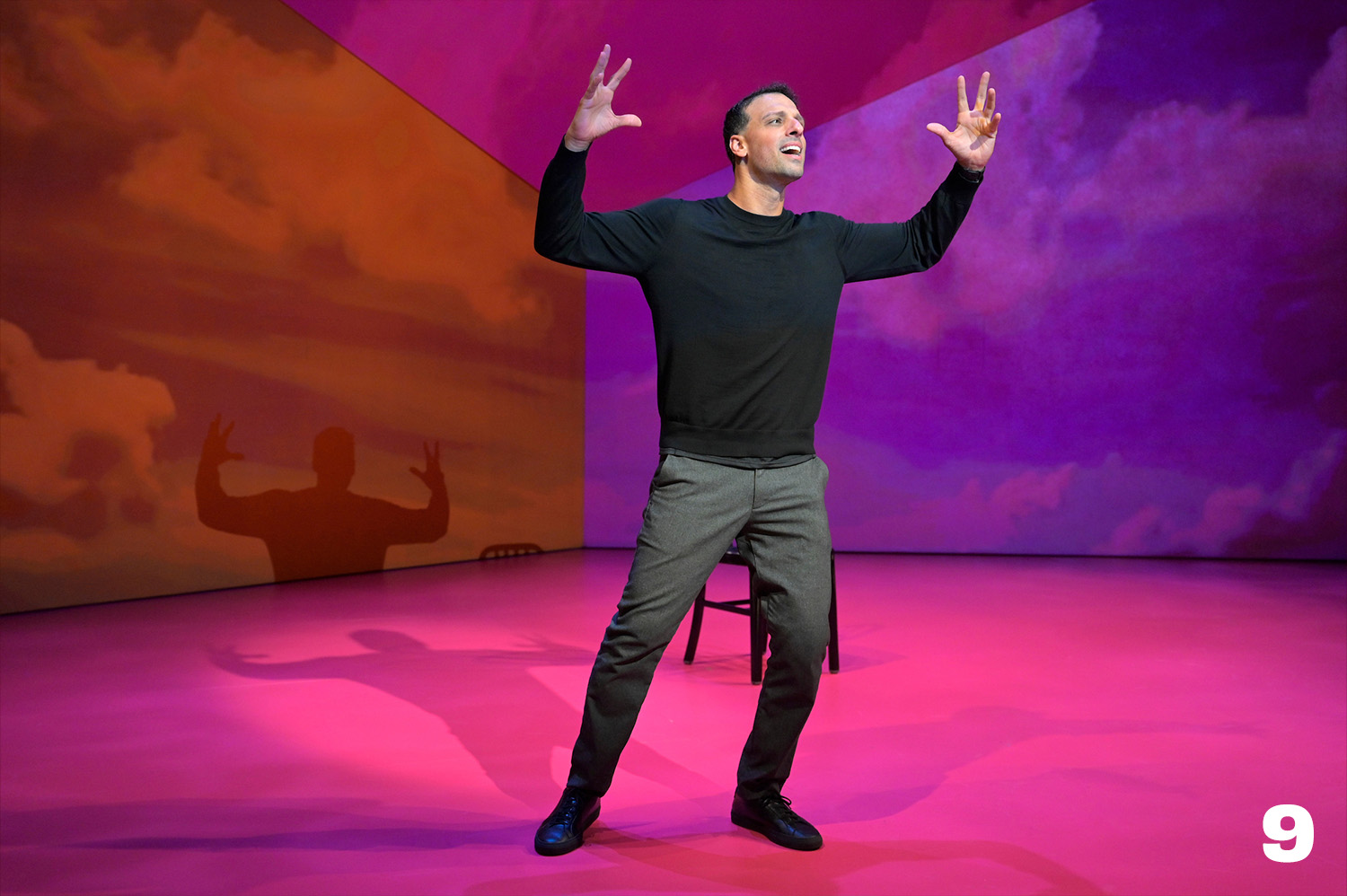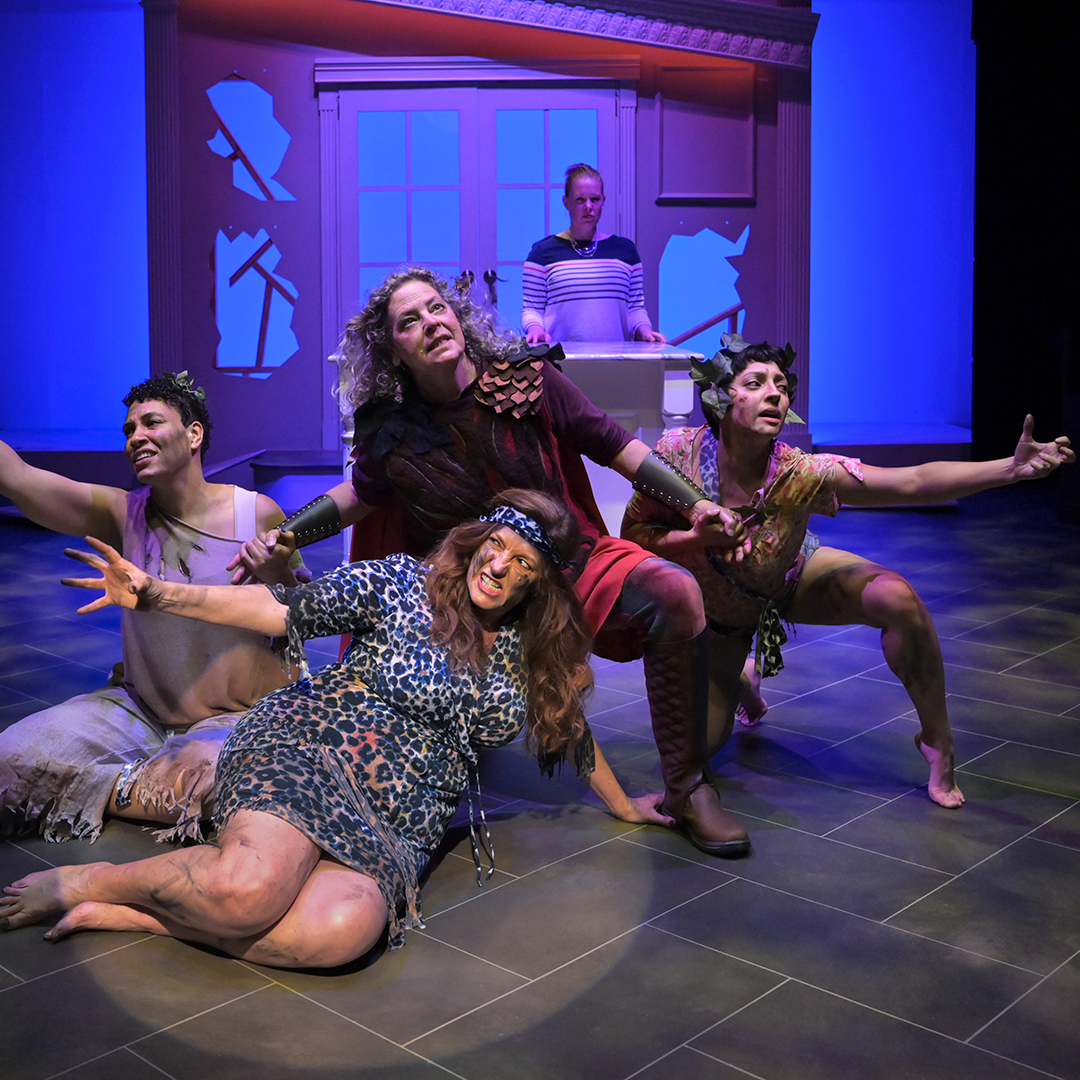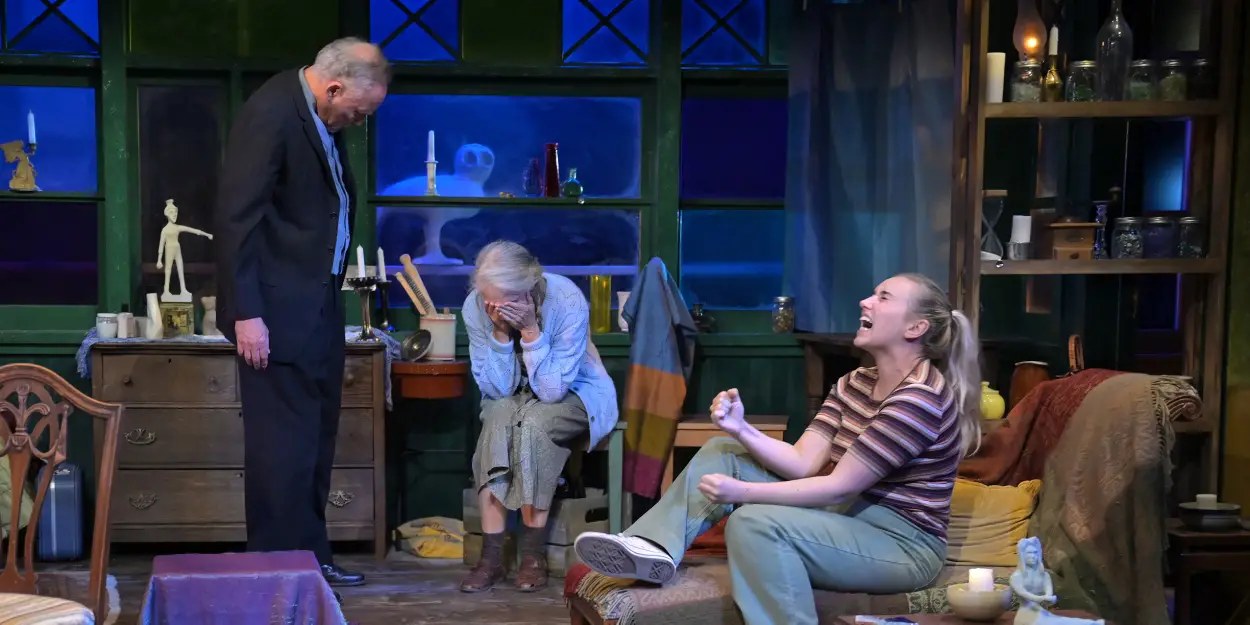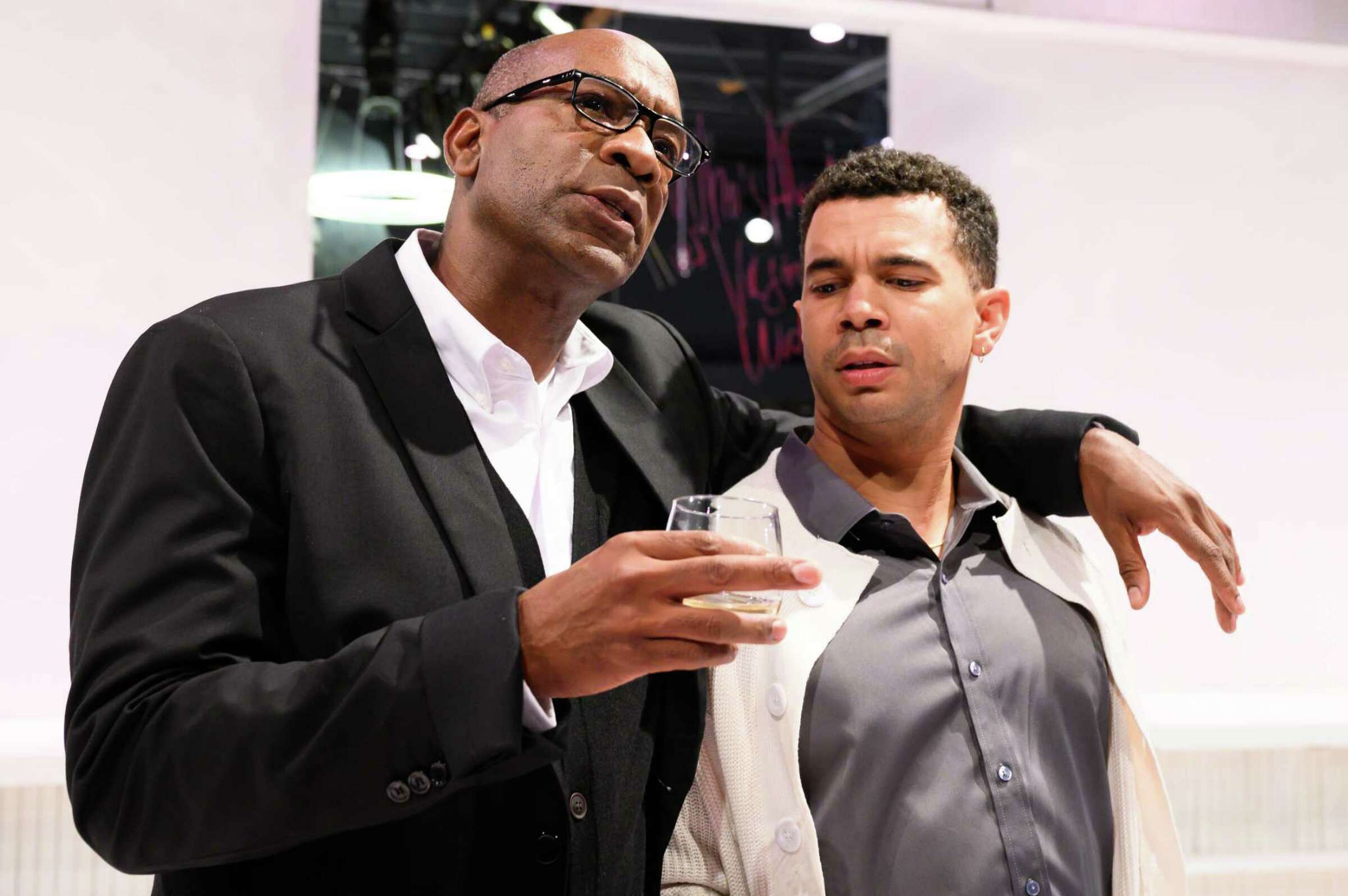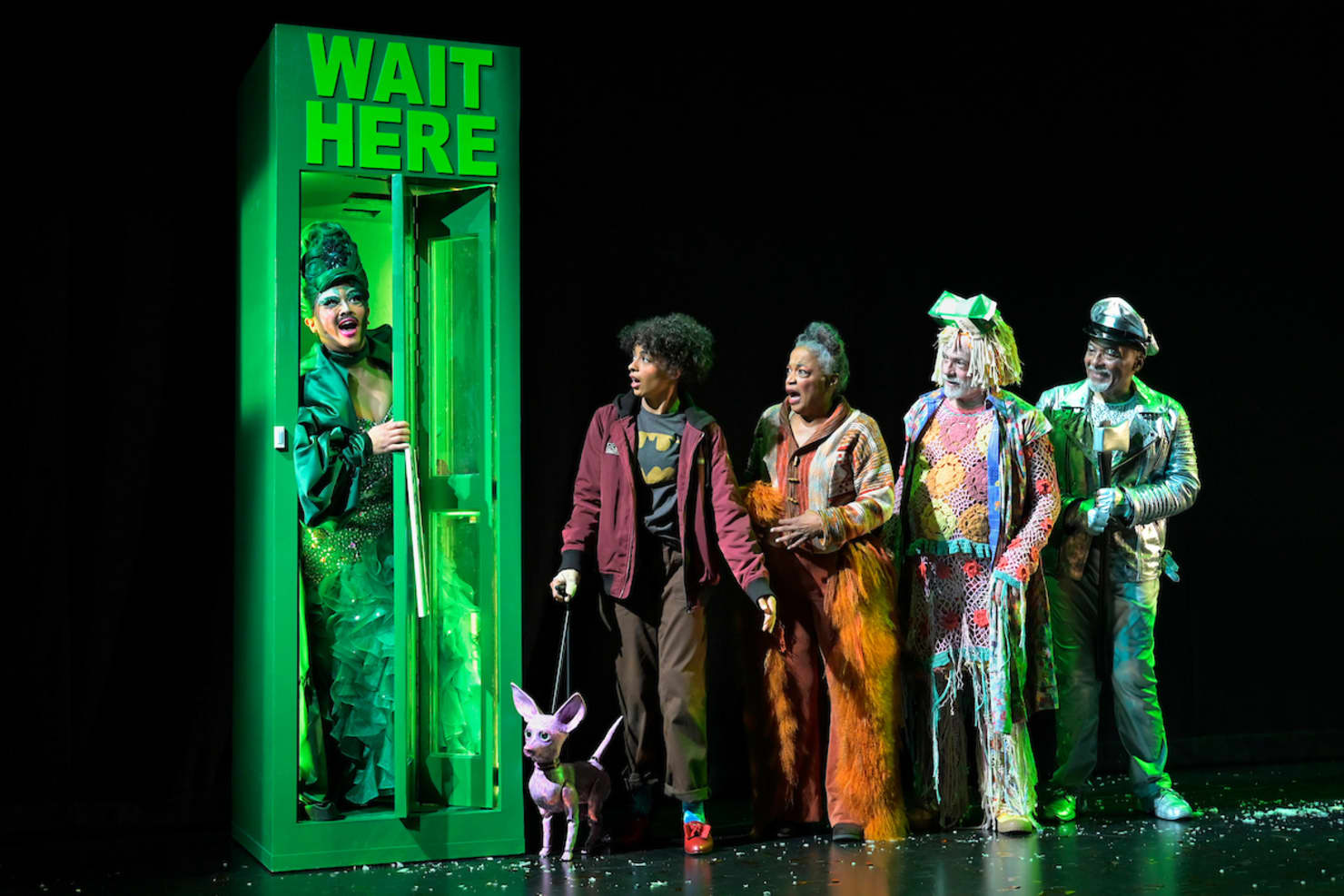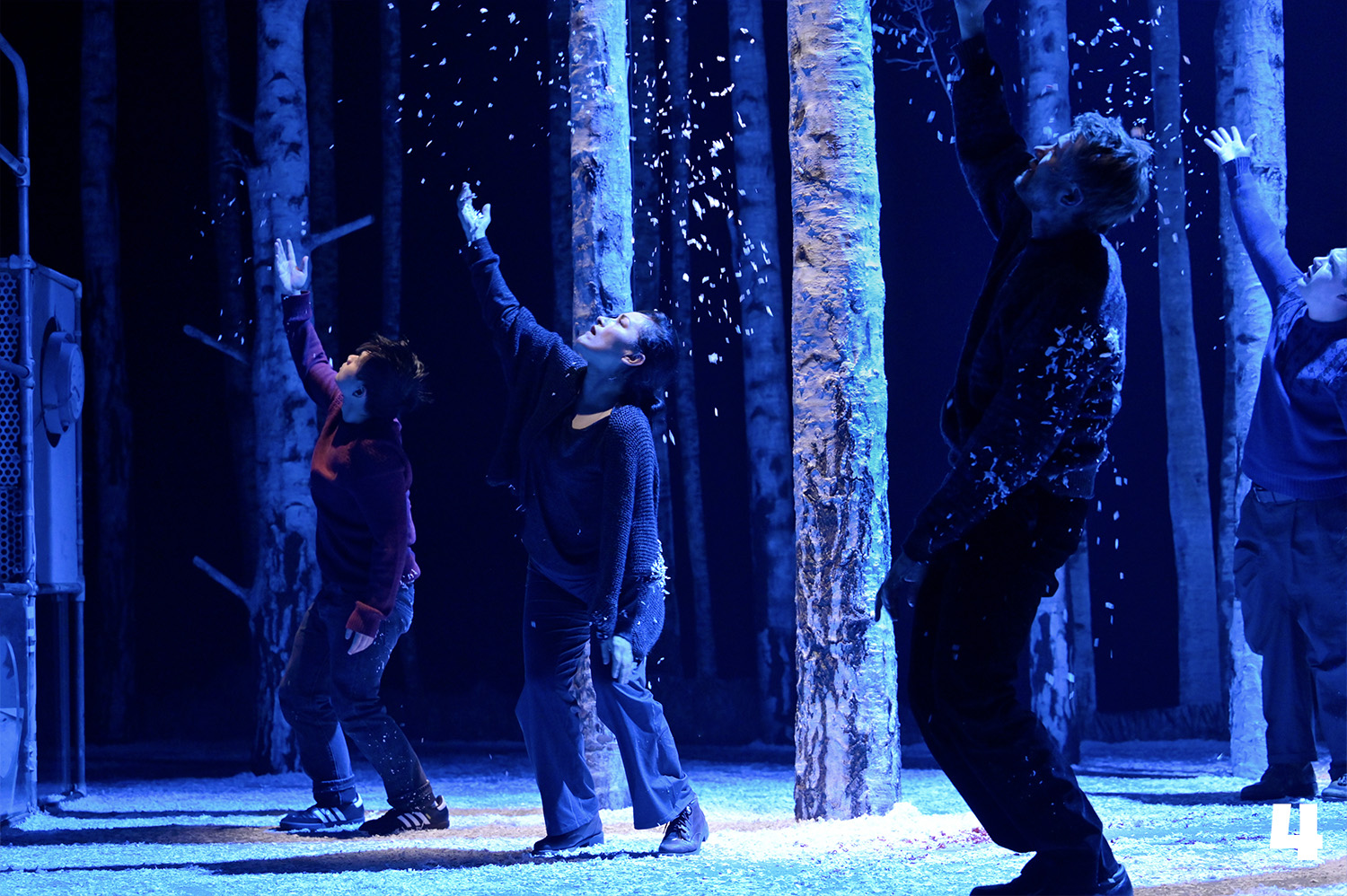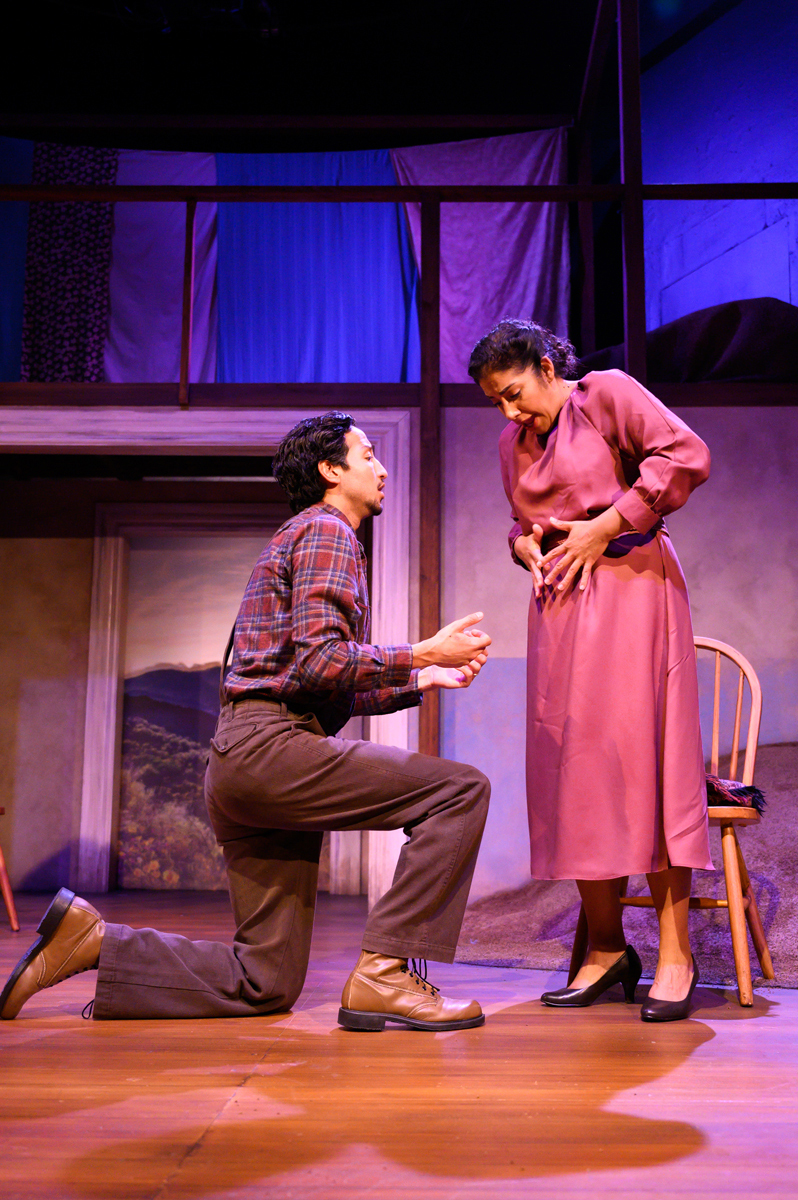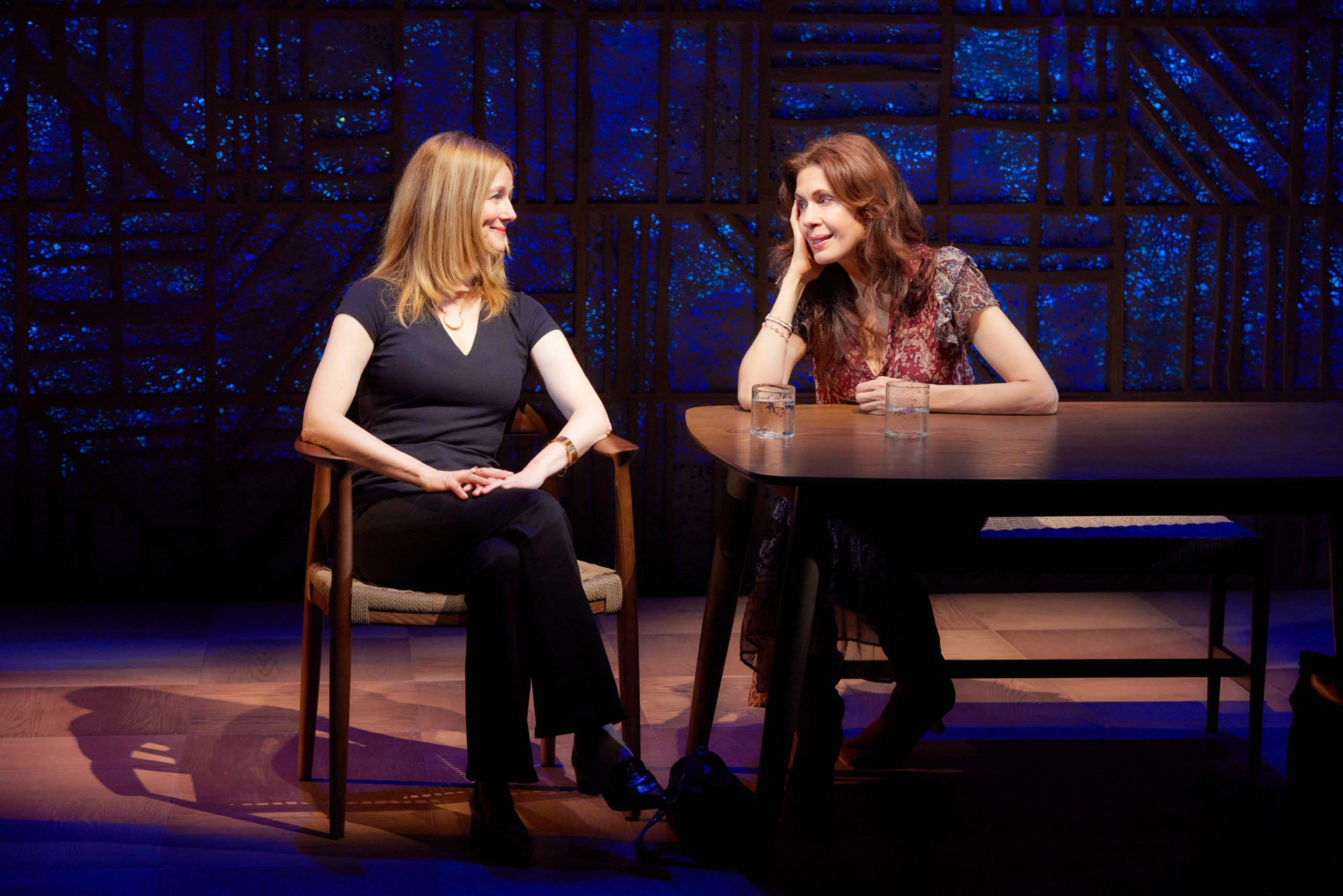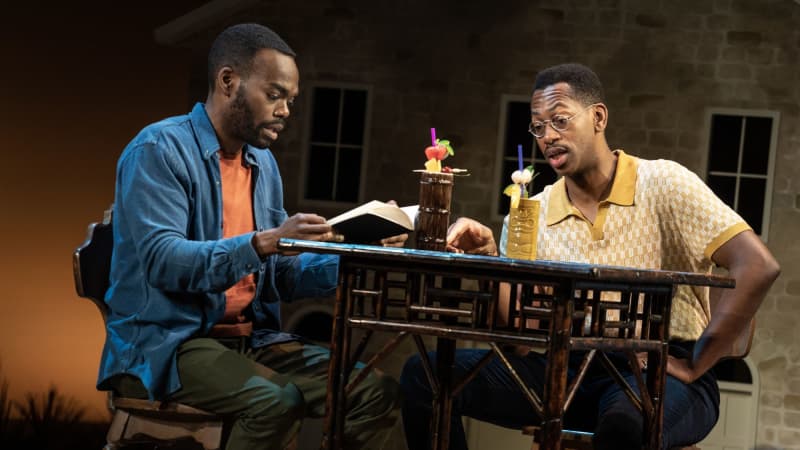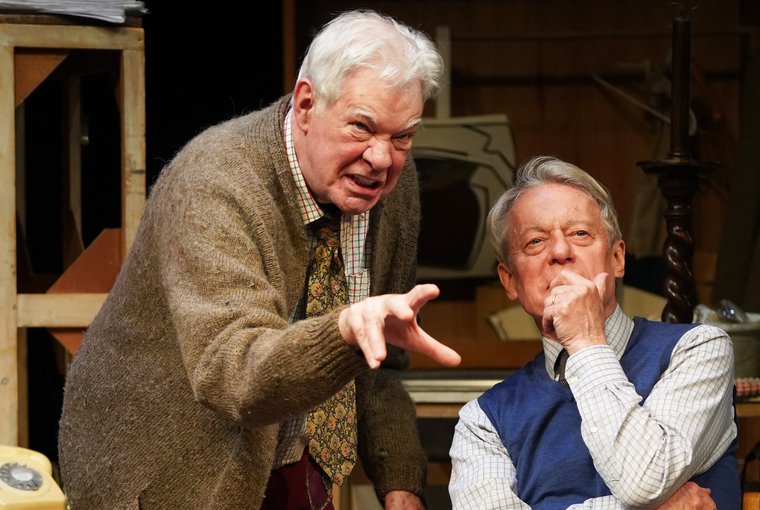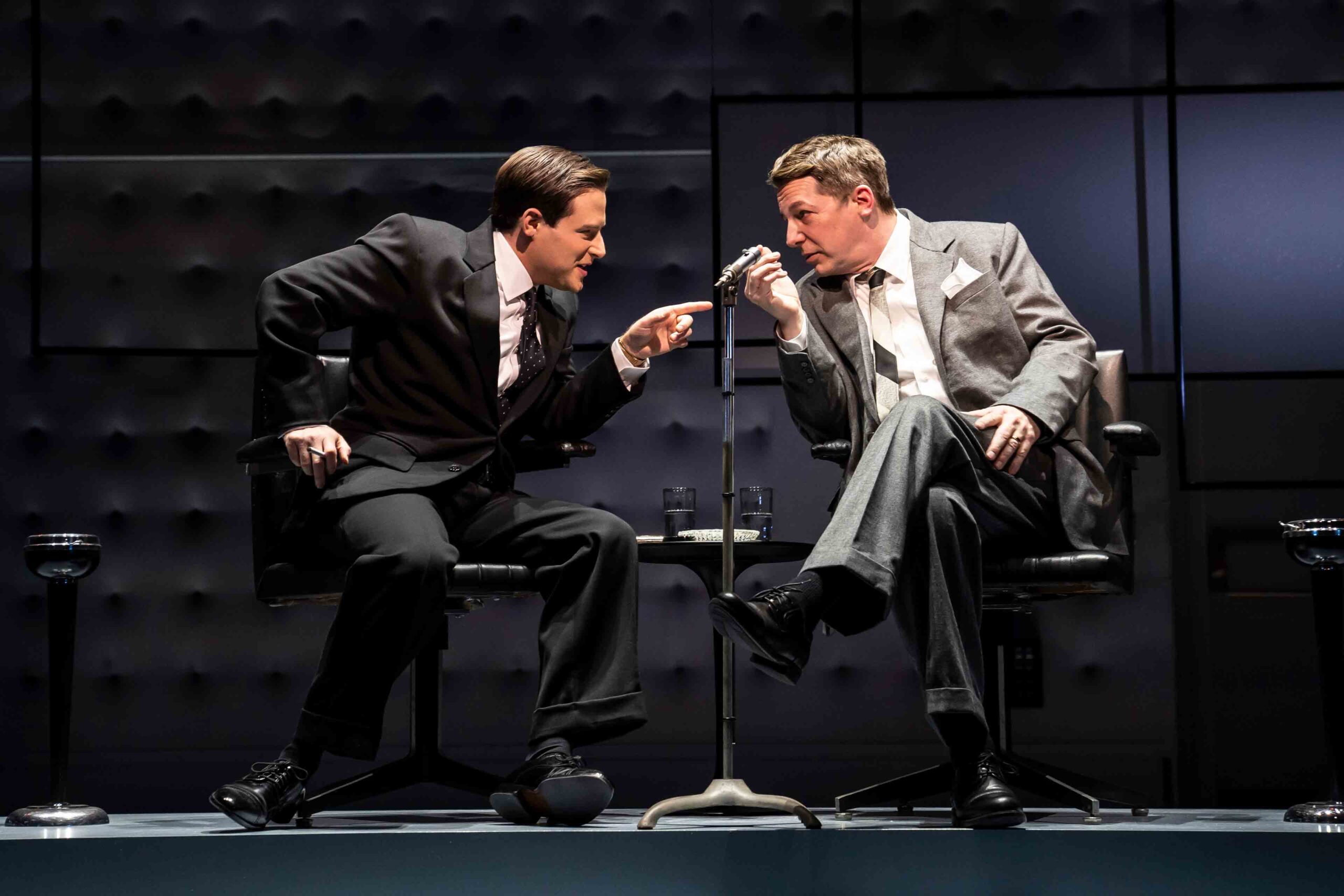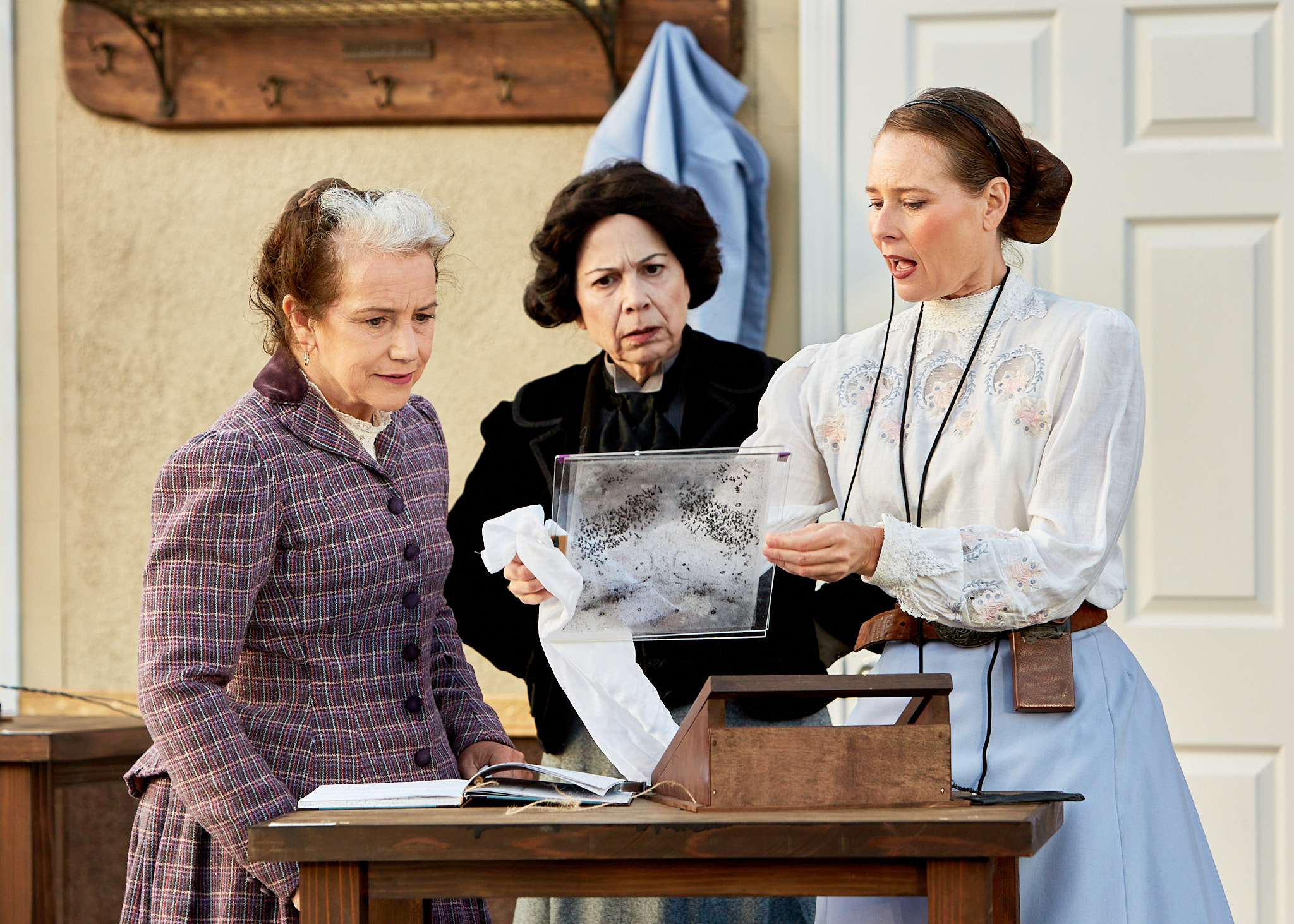 |
| SPARC Theater production photo by Gregg Le Blanc | CumulusLight Photography |
I knew nothing of SPARC Theater (other than they perform in a vineyard and used to be called the Livermore Shakespeare Festival) going into this. But I'm a fan of Lauren Gunderson's plays about women in science, but I had never seen Silent Sky, so it seemed like a good chance to see a play about astronomy in an outdoor theater.
The Play
There are a lot of common themes in Gunderson's works about women in science. Fundamentally, it has always been difficult for women to get a foothold in the field, despite great talent, interest, and initiative. And the story of astronomer Henrietta Leavitt is no exception. Although she loves math and staring up at the stars, she is stuck in rural Wisconsin with a conservative preacher father. Eventually, with some assistance from her sister, she applies for and is offered a job working as a computer for a professor of astronomy at Harvard.
Appropriately, we never actually see the professor. Henrietta works in a group of women (sometimes referred to as the "harem") who catalog the stars observed by the male astronomers. They get occasional visits (on his rounds) from the professor's assistant. It's a bit like the story in Hidden Figures, only a generation or so earlier, with women doing intense calculations but getting no credit, having no hope of advancement, and so on.
Eventually, having gotten permission to stay late and do extra work on her own (yes, really), Henrietta makes some intriguing discoveries about pulsing stars, and over time develops them into a publishable paper that becomes a useful tool for other astronomers doing work on things like measuring the distances between stars and calculating the size of the universe. Little stuff like that.
Needless to say, what recognition she eventually gets comes very late. And her personal life is a bit difficult as well. She is hard of hearing and a bit socially awkward, and really the only man in her life (now that she doesn't live with her father) is the professor's assistant,
The Production
I had pretty low expectations going in, figuring this is pretty much a community theater, fairly far away from the bulk of bay area theaters. I was pleasantly surprised to find that many of the cast members were familiar to me, and also many of the other artists. The theater itself is kind of minimal: there is a stage, with some lights, in the corner of a lawn near the winery's tasting room, with a covered area for dining and rows of folding chairs on the lawn. So it's not fancy, but it's not bad, either.
The lead role of Henrietta Leavitt is played by Elena Wright, a well-established local actor who I had last seen in The Language Archive at TheaterWorks Silicon Valley back before the pandemic. Radhika Rao (as Henrietta's sister, Margaret) and Mary Ann Rodgers (Annie Cannon) have both been in productions at Shotgun recently, and Emilie Talbot (Williamina Fleming) is very experienced and very solid with her Scottish accent. Jake Arky (Peter Shaw, the professor's assistant) gave me pause, but ultimately it became clear that he was accurately portraying a scientist who was himself quite awkward.
[Side note: Elena Wright does a lot of work as an intimacy director in many local theaters, so watching her Henrietta awkwardly flirting with Shaw was kind of extra ironic fun. Well done!]
The set by Malcolm Rodgers is pretty impressive for the outdoor venue. We were there on a windy, cool night, and the wind was making life difficult for various papers and notebooks on the set, but on the whole it was fine. There were definitely times when actors and crew were visible behind the scenes, which was only partially because of wind, but such things are difficult outdoors. There were definitely some issues with the microphones (and not all because of the wind).
On the whole, it was a solid production. Nothing very spectacular, but it's really not that kind of play. We got a good feel for the characters and their stories. If anything, I would have appreciated a little more time spent on the last bits, as we learn the outcomes for the characters; that part felt a bit rushed, which isn't kind at the end of a two-hour play.
The Bottom Line
It's a decent enough theater, and I thought the quality of the production was remarkably high. It was colder than expected outside, but there were blankets available, and the wines were rather tastier than I anticipated. Ticket prices seemed a bit high for the setting.
I'm sure I will keep an eye on what's happening in the future. Their next show this summer is Much Ado About Nothing, which is not my favorite Shakespeare play, so I don't know that I'll bother. But they do seem to do interesting things. Just have to see what makes sense for the long trek out there.
And again, the show has now closed, so I can't really recommend going. But SPARC seems like an interesting theater. And there is wine.
